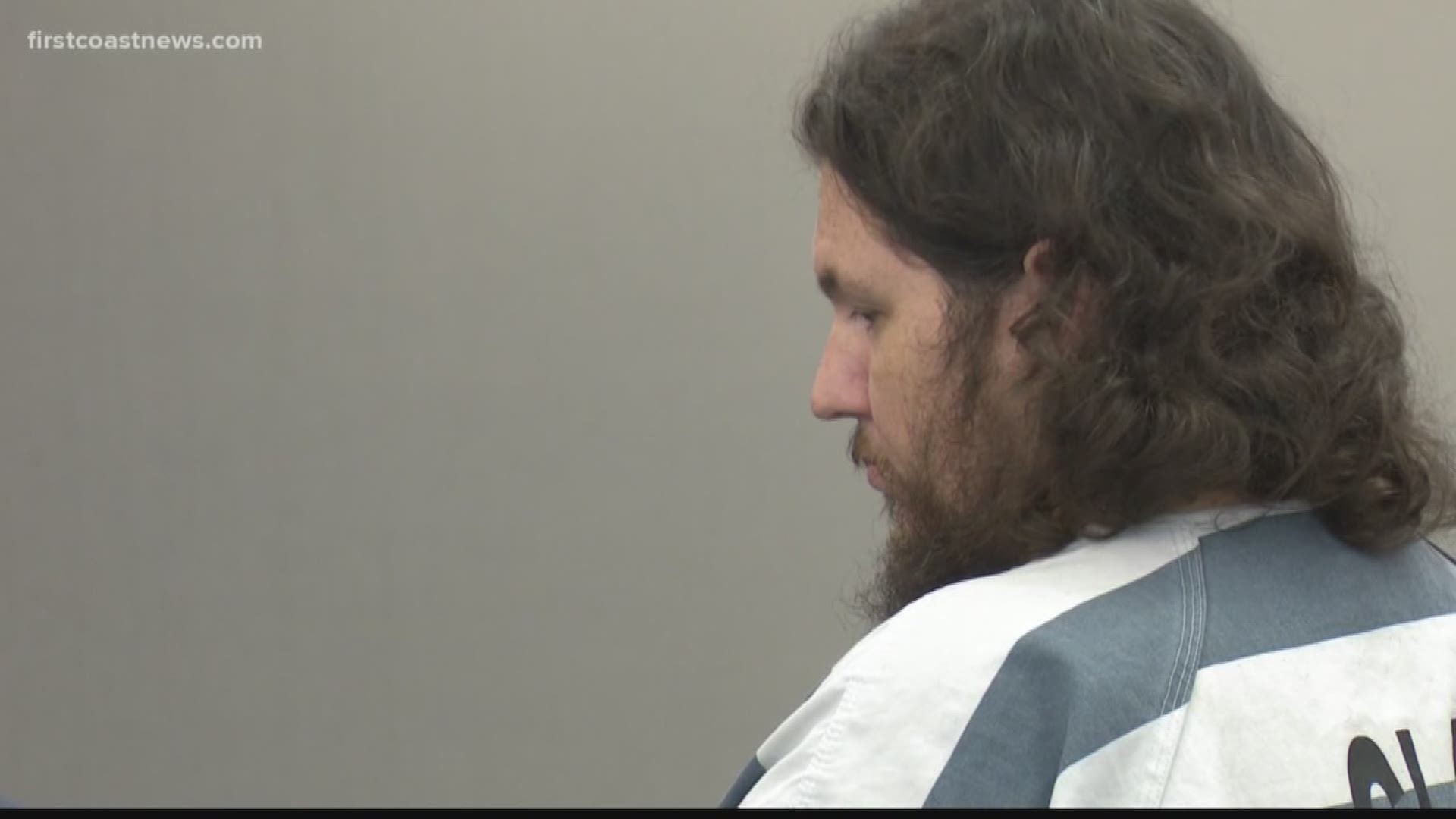After 4-and-a-half years of delay, Donald Davidson’s death penalty trial was set to begin in June.
But at his final pretrial hearing Tuesday, he stunned prosecutors, the judge, even his own attorneys, saying he wanted to plead guilty.
Though not unprecedented, pleading guilty in a death penalty case is exceedingly rare. And it hasn’t happened since the state adopted new laws requiring unanimous jury decisions in death penalty cases.
“It’s a first for me,” Davidson’s attorney Mark Wright told Circuit Judge Don Lester with a small laugh. “I don’t really know how to proceed with a decision like that.”
Davidson is charged with first-degree murder, kidnapping and capital sexual battery, stemming from a grisly December 2014 crime. He is alleged to have assaulted and murdered 35-year-old Roseann Welsh in her Middleburg home, then kidnapped and raped her 10-year-old daughter. He was a registered sexual predator at the time. Up until this point, he has pleaded not guilty.
Death penalty cases are typically split into a guilt phase, and – if a jury finds a defendant guilty – a penalty phase, during which the jury decides whether to impose a sentence of death or life in prison.
Davidson’s attorney said his client wanted to dispense with both phases and have the judge decide the matter outright.
“Of course we spent a little bit of time – to be candid with the court – trying to talk him out of it,” Wright told the judge, “but that was the decision that he made.”
Criminal defense attorney Ann Finnell, who isn't connected to the case, said before the state's death penalty procedures changed, defendants would occasionally plead guilty in death cases. But the new procedures are generally interpreted to mean that a jury, not a judge, makes the recommendation of either life in prison or death.
A judge can ignore that recommendation, but that would be unlikely, and probably politically untenable.
Finnell says that even if Donaldson was permitted to skip the guilt phase and forgo a jury trial, prosecutors would still have to present evidence to the judge in order to get a death sentence.
“The judge, as a fact-finder, would have to go through the same process as a jury would," Finnell said. "In other words -- has the state proved at least one aggravating factor beyond a reasonable doubt, and is that sufficient for the death penalty?"
Still, it was not clear if Davidson was fully committed to his plan. Shortly after Wright laid out the three options they had discussed with their client – the third being his desire to forgo a trial entirely -- Davidson interjected.
"Your honor, I decided with option number 2, that Mark [Wright] had just explained," he said.
Judge Lester noted that was “a little bit different from what I heard" and wondered if "your thinking may be going back and forth a little bit.”
Pressing for clarity, he asked, "So is your current thinking that you want to bypass the guilt phase, plead guilty and have penalty phase?”
“Yessir,” Davidson replied.
Given what he called “obviously very weighty matters,” Lester said he would give the defendant another day to mull it over.
“I’m going to pass your case until we’re going to reconvene tomorrow," the judge said. "I’m going to give you an opportunity to think about this some more, and also to talk about this with your attorney some more. And then we’ll come back tomorrow, and whatever your decision is that day, then that’s the way we’ll go.”
Finnell said she thought the judge's decision to give the matter extra time was smart, given the dissonance of a defendant essentially asking the state to execute him.
“The bottom line is, life in prison is a pretty terrible thing for anyone to endure,” Finnell said. “Faced with that prospect, I’m not sure how I would deal with it, frankly.”
Court resumes at 9 a.m. Wednesday. First Coast News will livestream the proceedings online. Follow @schindy on Twitter for updates.

